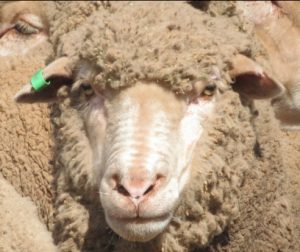 WHAT do you think should be the penalties for people who commit acts of animal cruelty in New South Wales?
WHAT do you think should be the penalties for people who commit acts of animal cruelty in New South Wales?
The New South Wales Department of Primary Industries is seeking community and stakeholder group feedback animal cruelty penalties and ways to improve animal management in emergency situations.
The two issues are explored in a discussion paper released today by the NSW DPI.
According to the discussion paper, NSW has lower penalties for similar offences in comparison to other states and jurisdictions. However in NSW and other states, there are additional penalties for serious and reckless animal cruelty in the Crimes Act.
NSW’s Prevention of Cruelty to Animals Act enforcement agencies have asked the government to review penalties for animal cruelty offences because they believe they are out of step with community expectations, and should be increased. The POCTA Act enforcement agencies have also asked the government to consider providing additional powers to courts to improve the effectiveness of compliance and enforcement efforts.
The POCTA Act currently allows inspectors, veterinary practitioners and saleyard or abattoir managers to humanely destroy an animal. However, it is unclear whether LLS is authorised to do this under the Local Land Services Act 2013. It is proposed to amend the POCTA Act to provide LLS and local council rangers with the power to humanely destroy livestock in certain emergency situations.
It is also proposed to broaden the application of seizure and disposal provisions to include intensively produced livestock (not only depastured), and to include smaller parcels of land not covered as rateable. This would mean seizure and disposal provisions would apply to poultry facilities,
piggeries, feedlots and dairies.
NSW DPI acting chief animal welfare officer, Kim Filmer, said the community felt passionately about animal welfare.
“We know community views about animal welfare are changing.
“We want to know how people feel about the current penalties for animal cruelty offences so we can ensure they are in line with community expectations,” he said.
“The discussion paper compares penalties in NSW with other states and other offences in this state.
“In addition, the discussion paper canvasses changes to legislation to better protect animal welfare during critical and emergency incidents,” he said.
“This includes natural disasters, business bankruptcy, drought and crashes involving stock carriers.”
The release of the discussion paper follows on from the launch of the NSW Animal Welfare Action Plan in May, and delivers on commitments detailed in the plan. The community will continue to be consulted as new policy and legislation changes take shape over the coming months and years, NSW DPI said.
“By making a submission on the discussion paper the community can be involved in ensuring that people responsible for animals provide for their welfare, in line with the best available science and community expectations,” Dr Filmer said.
Feedback can be provided in an online survey, which will be open until 5pm on July 22 2018. To read the discussion paper and for more information online, click on this link.
Source: NSW DPI.

The penalties must be increased. Anyone who can harm an animal has it in them to harm any vulnerable being.
Once again, a welfare plan has been formulated without input from sheep industry bodies in NSW. And don’t say that NSW Farmers were the body. Most don’t belong to them.